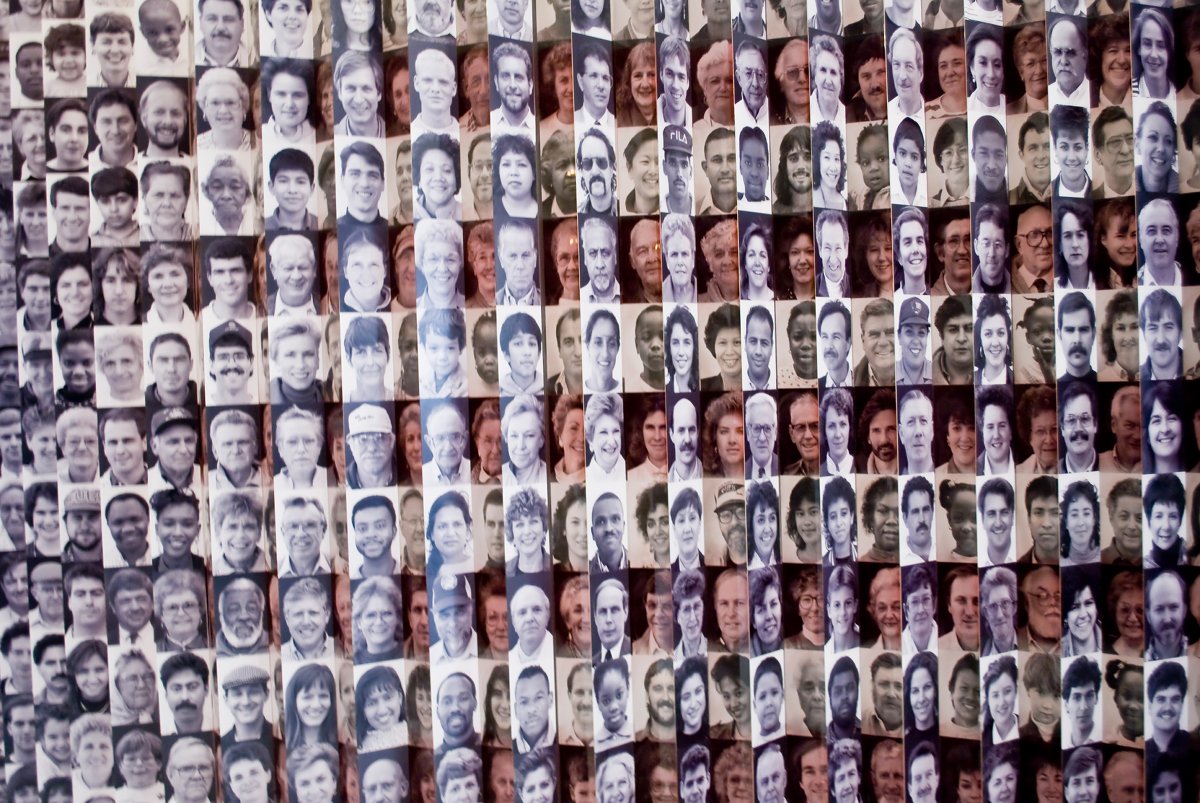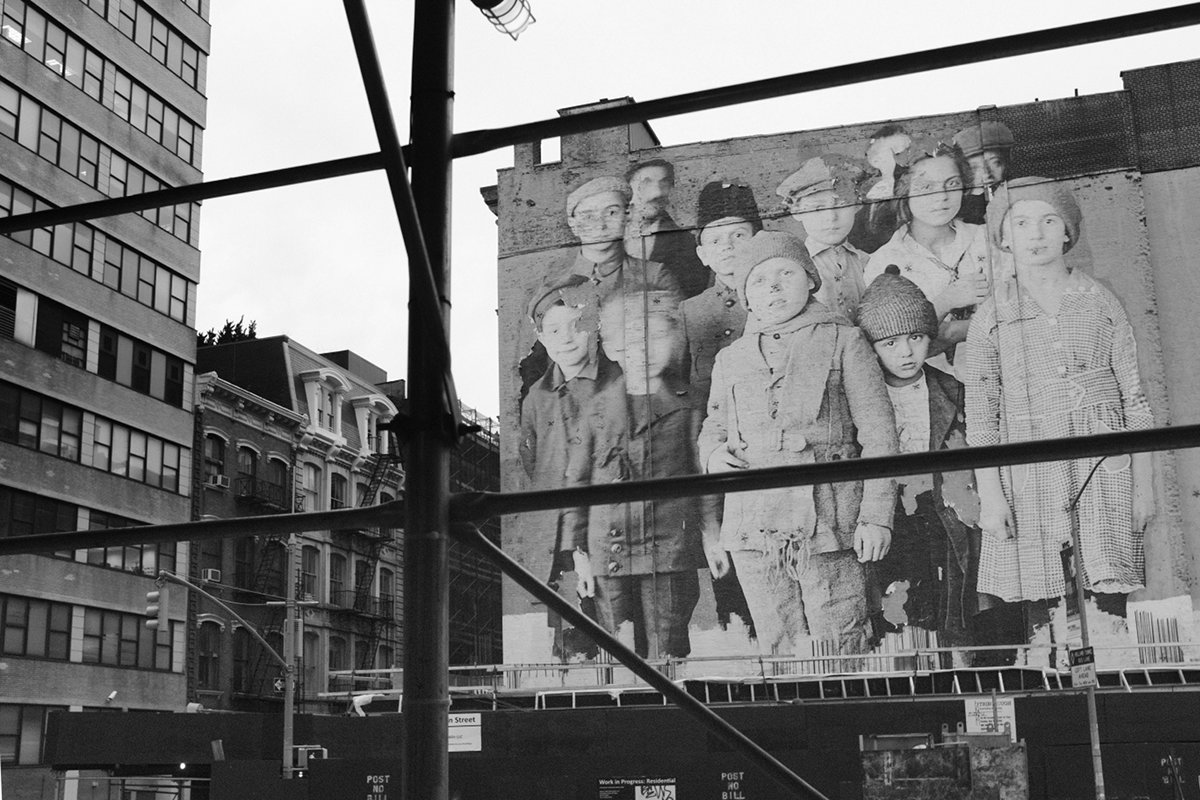“Whether it is tribalism, racism, xenophobia, or anti-Muslim backlash we’re talking about, we spend so much time and energy fighting ways to divide ourselves from others.”
I recently learned that my great grandfather, William, was a large landowner in Michigan and took part in the Gold Rush in the 19th century.
William originally came from England in 1835 with 50 cents in his pocket.

He somehow managed to make his way to California where he drove horses as a teamster and mined for gold. By 1880, he owned a farm in Michigan free of mortgage, farmed over 400 acres, milked 70 cows, and produced almost 14,000 pounds of cheese which he sold for eight cents a pound.
My grandfather and father both worked that farm and milked cows for a living until they went on to pursue other entrepreneurial careers.
I guess my roots for reckless risk taking run deep.
More importantly, hearing this story about my great grandfather made me appreciate how welcoming this country used to be to certain immigrants and what abundant opportunities it provided for those folks who were willing to work hard and take risks.
The story prompted me to think about what causes people to be patriotic, nationalistic, or xenophobic, i.e. how did their histories, experiences and stories lead them to feel one way or another toward ethnic and cultural differences? Let’s start with definitions.
-
Patriotism is the love of one’s country. People can differ ideologically and still share a deep sense of patriotism.
-
Nationalism is devotion to one’s country. It exalts one nation above all others and places primary emphasis on the promotion of its culture and interests as opposed to other nations.
-
Xenophobia is the fear and hatred of strangers or foreigners or of anything that is strange or foreign.
In short, patriotism is about singular love, nationalism is about oppositional devotion, and xenophobia is about foreign fears.
Having served three years in the Army and having benefitted from the systems and structures of the United States, I consider myself a patriot.
I love the promise and possibility of this country.
On the other hand, as globalist and pluralist, I do not consider myself a nationalist.
I’m not opposed to the values and cultures of all other countries. To the contrary, I’m totally fascinated by them and have travelled the world to learn more about them.
While I don’t agree with the norms and values of every culture, I am not a xenophobe, and I try to stay open to different points of view.
As the opening story reveals, my deep roots are not grounded in fear.
To me, xenophobia creates divisiveness, alienation, and hostility. It’s hyper-anxious nature leads to a closing of our minds, a narrowing of our perspectives, a shutting down of our love, and a walling out of anything or anyone who appears strange or foreign to us.
In the book America for Americans, Erika Lee, PhD, an award-winning historian, traces the devastating history of xenophobia in the United States.
While the US is known as a nation of immigrants, it also has a bleak history of xenophobia.

Lee shows how irrational fear, hatred, and hostility toward immigrants have been defining characteristics of our nation from colonialism to current times. There is no denying our grotesque history of slavery and genocide, and the sins of our early history are compounded by movements against multiple ethnic minorities. Over the course of our 200+ years as a nation, we have excluded Chinese immigrants, incarcerated Japanese, deported Mexicans, and discriminated against Muslims, Latinos, and African Americans. Lee’s book not only explains thoroughly how xenophobia works and why it has endured, but also implores us to explore how it threatens America and compels corrective actions.
For me, the question for each of us is how we fall on the following scale with anyone who is seen as “different”:
- 5.0: Welcoming
- 4.0: Inviting
- 3.0: Accepting
- 2.0: Tolerant
- 1.0: Intolerant
My wife sometimes reminds me how I can be arrogant and intolerant in certain situations. Guilty as charged. I don’t claim to be completely welcoming of all people in all circumstances. I do strive, however, to be more welcoming of more people and ideas in more situations.
None of these labels on the scale is fixed.
It’s entirely possible that we are intolerant on some days in some ways and welcoming in others at different points of time.
Here’s what these different levels mean to me.
-
Intolerance means to reject anything or anybody that makes you uncomfortable or challenges you to consider another point of view. Being intolerant means being narrow-minded about different views, beliefs, or behaviors. Bigoted, small-minded, parochial and provincial people all fall in the intolerant bucket. Xenophobes are intolerant at best and hostile at worse.
-
Tolerance means being able to endure a situation. It is the willingness and ability to hear opinions that don’t necessarily conform to your own. People who are tolerant are able to “suffer” differences. Nationalists are tolerant at best and distancing at worst.
-
Acceptance means consenting to receive. It is the action of admitting someone into a group. Clearly, neither xenophobes or nationalists are inclined to admit people from different countries into their respective “clubs” or “tribes.” Accepting means being ok with inclusion.
-
Inviting means reaching out and greeting. It is more of an initiative act. To invite someone into your group means actively seeking ways to include them and have them feel that they belong. To me, this is what it means to be an American patriot.

Title: Ellis Island Immigrant Children Mural | Author: Zach Korb | Source: Own Work | License: CC BY-NC
-
Welcoming means lovingly embracing strangers and people who are “different.” It’s a warm reception that gives pleasure to all parties. Welcoming is a way of opening up to differences and to fresh ways of looking at life and other cultures. Welcoming means joining with others to create something new and better. Perhaps this is what we need to do to become patriotic possibilists.
With 50 cents in his pocket, my great-grandfather took risks, worked hard, and spawned several generations of entrepreneurs. I wish we would welcome other immigrants, who might not look like William, with the same embrace as I’m assuming he received.
Clearly, we are a long way from welcoming what may seem strange or different in our lives.


